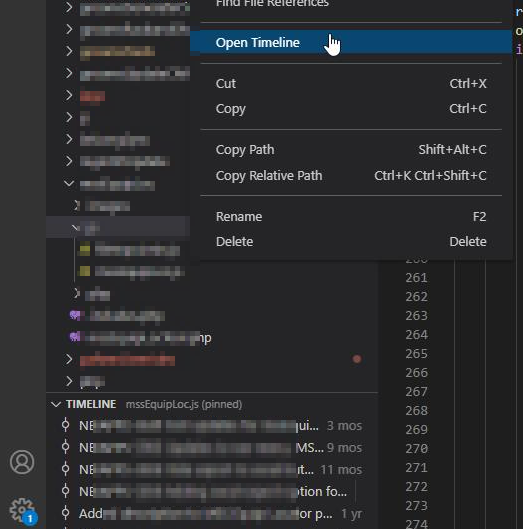To set up my redis sandbox in Docker, I created two folders — conf and data. The conf will house the SSL stuff and configuration file. The data directory is used to store the redis data.

I first needed to generate a SSL certificate. The public and private keys of the pair are stored in a pem and key file. The public key of the CA that signed the cert is stored in a “ca” folder.
Then I created a redis configuation file — note that the paths are relative to the Docker container
################################## MODULES #####################################
################################## NETWORK #####################################
# My web server is on a different host, so I needed to bind to the public
# network interface. I think we'd *want* to bind to localhost in our
# use case.
# bind 127.0.0.1
# Similarly, I think we'd want 'yes' here
protected-mode no
# Might want to use 0 to disable listening on the unsecure port
port 6379
tcp-backlog 511
timeout 10
tcp-keepalive 300
################################# TLS/SSL #####################################
tls-port 6380
tls-cert-file /opt/redis/ssl/memcache.pem
tls-key-file /opt/redis/ssl/memcache.key
tls-ca-cert-dir /opt/redis/ssl/ca
# I am not auth'ing clients for simplicity
tls-auth-clients no
tls-auth-clients optional
tls-protocols "TLSv1.2 TLSv1.3"
tls-prefer-server-ciphers yes
tls-session-caching no
# These would only be set if we were setting up replication / clustering
# tls-replication yes
# tls-cluster yes
################################# GENERAL #####################################
# This is for docker, we may want to use something like systemd here.
daemonize no
supervised no
#loglevel debug
loglevel notice
logfile "/var/log/redis.log"
syslog-enabled yes
syslog-ident redis
syslog-facility local0
# 1 might be sufficient -- we *could* partition different apps into different databases
# But I'm thinking, if our keys are basically "user:target:service" ... then report_user:RADD:Oracle
# from any web tool would be the same cred. In which case, one database suffices.
databases 3
################################ SNAPSHOTTING ################################
save 900 1
save 300 10
save 60 10000
stop-writes-on-bgsave-error yes
rdbcompression yes
rdbchecksum yes
dbfilename dump.rdb
#
dir ./
################################## SECURITY ###################################
# I wasn't setting up any sort of authentication and just using the facts that
# (1) you are on localhost and
# (2) you have the key to decrypt the stuff we stash
# to mean you are authorized.
############################## MEMORY MANAGEMENT ################################
# This is what to evict from the dataset when memory is maxed
maxmemory-policy volatile-lfu
############################# LAZY FREEING ####################################
lazyfree-lazy-eviction no
lazyfree-lazy-expire no
lazyfree-lazy-server-del no
replica-lazy-flush no
lazyfree-lazy-user-del no
############################ KERNEL OOM CONTROL ##############################
oom-score-adj no
############################## APPEND ONLY MODE ###############################
appendonly no
appendfsync everysec
no-appendfsync-on-rewrite no
auto-aof-rewrite-percentage 100
auto-aof-rewrite-min-size 64mb
aof-load-truncated yes
aof-use-rdb-preamble yes
############################### ADVANCED CONFIG ###############################
hash-max-ziplist-entries 512
hash-max-ziplist-value 64
list-max-ziplist-size -2
list-compress-depth 0
set-max-intset-entries 512
zset-max-ziplist-entries 128
zset-max-ziplist-value 64
hll-sparse-max-bytes 3000
stream-node-max-bytes 4096
stream-node-max-entries 100
activerehashing yes
client-output-buffer-limit normal 0 0 0
client-output-buffer-limit replica 256mb 64mb 60
client-output-buffer-limit pubsub 32mb 8mb 60
dynamic-hz yes
aof-rewrite-incremental-fsync yes
rdb-save-incremental-fsync yes
########################### ACTIVE DEFRAGMENTATION #######################
# Enabled active defragmentation
activedefrag no
# Minimum amount of fragmentation waste to start active defrag
active-defrag-ignore-bytes 100mb
# Minimum percentage of fragmentation to start active defrag
active-defrag-threshold-lower 10
Once I had the configuration data set up, I created the container. I’m using port 6380 for the SSL connection. For the sandbox, I also exposed the clear text port. I mapped volumes for both the redis data, the SSL files, and the redis.conf file
docker run --name redis-srv -p 6380:6380 -p 6379:6379 -v /d/docker/redis/conf/ssl:/opt/redis/ssl -v /d/docker/redis/data:/data -v /d/docker/redis/conf/redis.conf:/usr/local/etc/redis/redis.conf -d redis redis-server /usr/local/etc/redis/redis.conf --appendonly yes
Voila, I have a redis server ready. Quick PHP code to ensure it’s functional:
<?php
$sodiumKey = random_bytes(SODIUM_CRYPTO_SECRETBOX_KEYBYTES); // 256 bit
$sodiumNonce = random_bytes(SODIUM_CRYPTO_SECRETBOX_NONCEBYTES); // 24 bytes
#print "Key:\n";
#print sodium_bin2hex($sodiumKey);
#print"\n\nNonce:\n";
#print sodium_bin2hex($sodiumNonce);
#print "\n\n";
$redis = new Redis();
$redis->connect('tls://memcached.example.com', 6380); // enable TLS
//check whether server is running or not
echo "<PRE>Server is running: ".$redis->ping()."\n</pre>";
$checks = array(
"credValueGoesHere",
"cred2",
"cred3",
"cred4",
"cred5"
);
#$ciphertext = safeEncrypt($message, $key);
#$plaintext = safeDecrypt($ciphertext, $key);
foreach ($checks as $i => $value) {
usleep(100);
$key = 'credtest' . $i;
$strCryptedValue = base64_encode(sodium_crypto_secretbox($value, $sodiumNonce, $sodiumKey));
$redis->setEx($key, 1800, $strCryptedValue); // 30 minute timeout
}
echo "<UL>\n";
for($i = 0; $i < count($checks); $i++){
$key = 'credtest'.$i;
$strValue = sodium_crypto_secretbox_open(base64_decode($redis->get($key)),$sodiumNonce, $sodiumKey);
echo "<LI>The value on key $key is: $strValue \n";
}
echo "</UL>\n";
echo "<P>\n";
echo "<P>\n";
echo "<UL>\n";
$objAllKeys = $redis->keys('*'); // all keys will match this.
foreach($objAllKeys as $objKey){
print "<LI>The key $objKey has a TTL of " . $redis->ttl($objKey) . "\n";
}
echo "</UL>\n";
foreach ($checks as $i => $value) {
usleep(100);
$value = $value . "-updated";
$key = 'credtest' . $i;
$strCryptedValue = base64_encode(sodium_crypto_secretbox($value, $sodiumNonce, $sodiumKey));
$redis->setEx($key, 60, $strCryptedValue); // 1 minute timeout
}
echo "<UL>\n";
for($i = 0; $i < count($checks); $i++){
$key = 'credtest'.$i;
$strValue = sodium_crypto_secretbox_open(base64_decode($redis->get($key)),$sodiumNonce, $sodiumKey);
echo "<LI>The value on key $key is: $strValue \n";
}
echo "</UL>\n";
echo "<P>\n";
echo "<UL>\n";
$objAllKeys = $redis->keys('*'); // all keys will match this.
foreach($objAllKeys as $objKey){
print "<LI>The key $objKey has a TTL of " . $redis->ttl($objKey) . "\n";
}
echo "</UL>\n";
foreach ($checks as $i => $value) {
usleep(100);
$value = $value . "-updated";
$key = 'credtest' . $i;
$strCryptedValue = base64_encode(sodium_crypto_secretbox($value, $sodiumNonce, $sodiumKey));
$redis->setEx($key, 1, $strCryptedValue); // 1 second timeout
}
echo "<P>\n";
echo "<UL>\n";
$objAllKeys = $redis->keys('*'); // all keys will match this.
foreach($objAllKeys as $objKey){
print "<LI>The key $objKey has a TTL of " . $redis->ttl($objKey) . "\n";
}
echo "</UL>\n";
sleep(5); // Sleep so data ages out of redis
echo "<UL>\n";
for($i = 0; $i < count($checks); $i++){
$key = 'credtest'.$i;
$strValue = sodium_crypto_secretbox_open(base64_decode($redis->get($key)),$sodiumNonce, $sodiumKey);
echo "<LI>The value on key $key is: $strValue \n";
}
echo "</UL>\n";
?>




